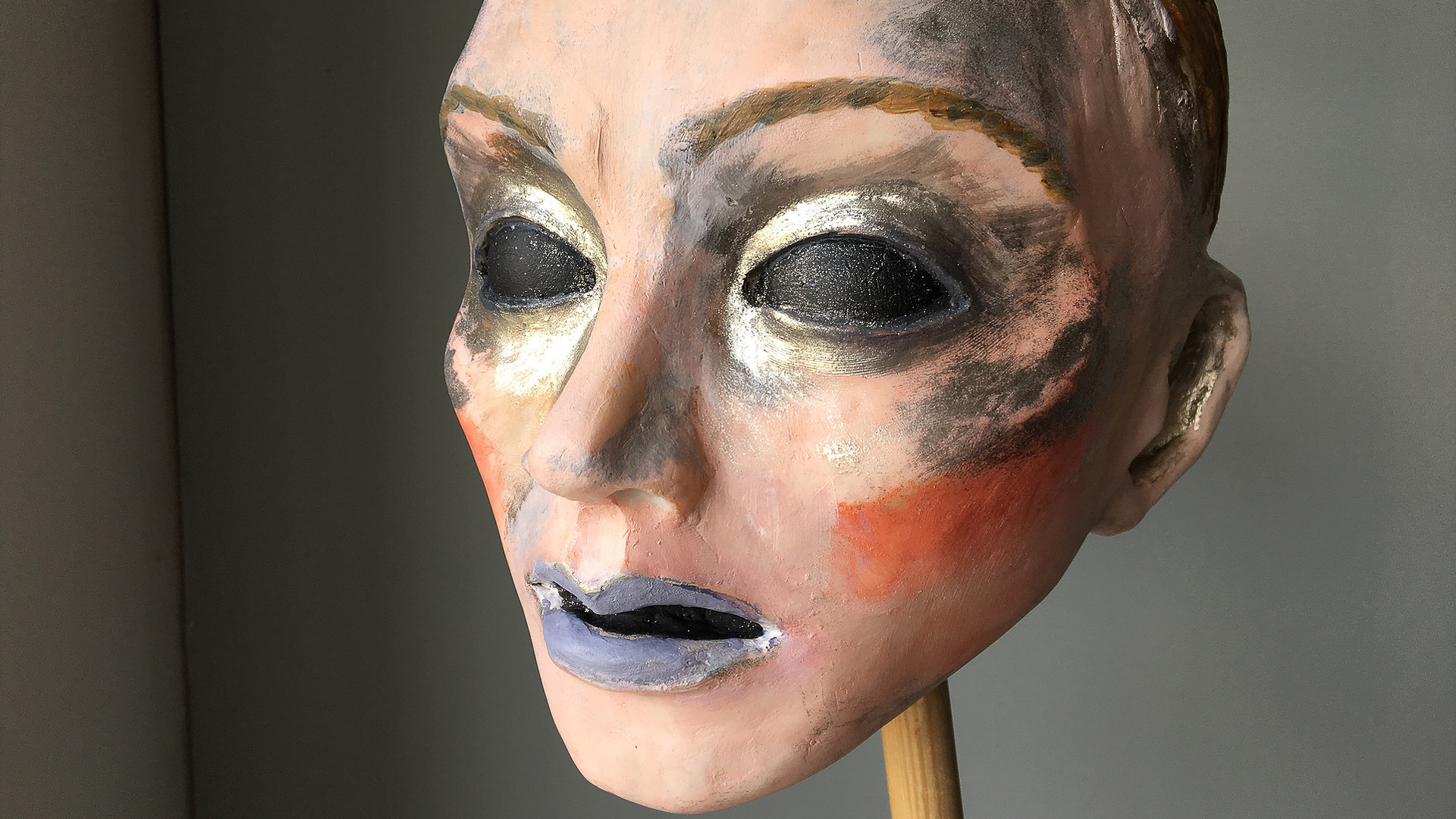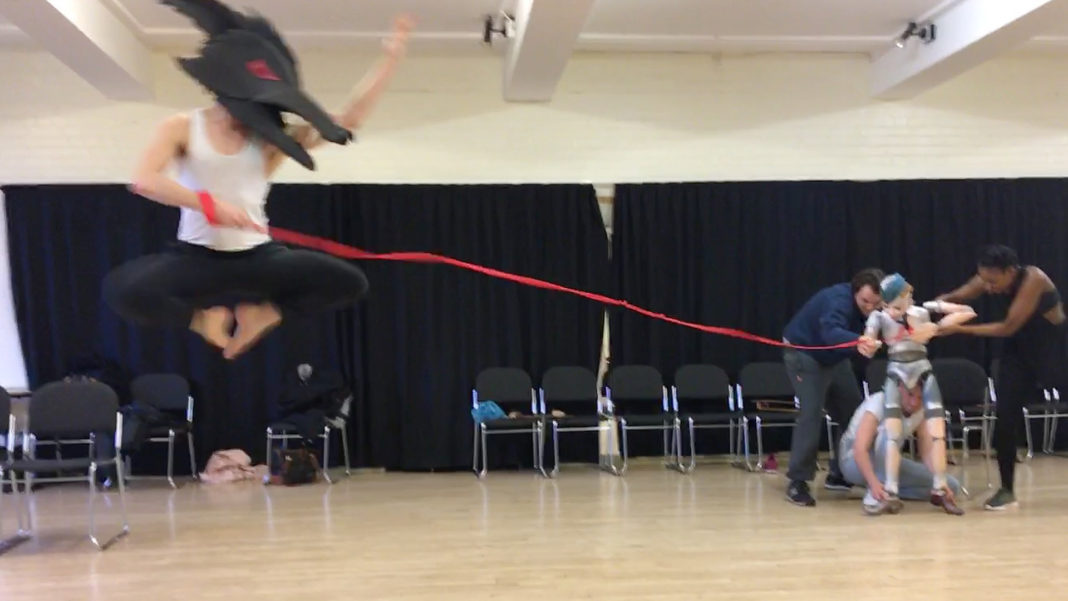No doubt many of us were introduced to a symphony orchestra and how it works through Peter and the Wolf. Sergei Prokofiev’s classic work used a simple story with simple characters to introduce young audiences to several of the instruments found in the orchestra. But did the composer have something else in mind? Was the composer also trying to stay alive in Stalinist Russia? These are the questions asked by Mark Down of Blind Summit Theatre – a London-based theatre company that uses puppets as its primary way of storytelling. They will be joining the Los Angeles Philharmonic on Tuesday night for a performance of Peter and the Wolf at the Hollywood Bowl that will no doubt be unique.

If the idea of puppets makes you think of pre-school performances, Blind Summit Theatre does things on a much bigger scale. They were involved in the 2012 London Olympics, they have collaborated with major opera directors and have played major festivals all over the world.
I recently spoke to Mark Down via Skype in London while he and the company were still working out details for Tuesday night’s performance. We spoke about how this production, which was commissioned by the LA Philharmonic, came to be, how he realized Blind Summit had something to say with this music and what might ultimately be lurking underneath Prokofiev’s music.
How did this commission come about?
A couple years ago I started talking about making a giant puppet for Bernstein’s Mass. And during that I went over to meet with the LA Phil and the Walt Disney Concert Hall team and that didn’t work out. I guess I must have made a dignified exit.
What were you going to puppetize for the Mass?
We were going to make a giant Celebrant. It was a brilliant idea, but it got killed partly because of getting it in the doorways. It was one of those ideas that when I pointed out the problem they were a little scared.
Prokofiev wrote a piece where the instruments are the characters. What does adding puppetry to the story do to enhance it, the music and Prokofiev’s education of younger audiences?
What happens to me when I’m listening to this is I’m excited by the premise that you will understand music by the end of the piece. But I slightly drift off after about 15 minutes and then suddenly it’s over. What I’m really trying to do is solve that problem. I suppose what the puppets do is show you how the music does work. You see the music affect the characters. And so you see the music as well as hear it.
The piece begins with an introduction to the instruments that serves as the voice of the characters. Will you introduce the puppets simultaneously with that?
My idea is that it looks like it’s going to be an ordinary version with a narrator [John C. Reilly] and orchestra. In the beginning you see the instruments play their parts. And then Peter appears at the beginning of the story. Peter is going to come in from the audience. I’m sort of thinking of it as the audience is the meadow. The characters are within the audience and within the orchestra. When we get to the second act, we’re all on stage.
Creatively does everything spring from Peter for your puppets?
Yes. The first thing was I listened to the music and I thought “that’s got to be puppet.” The next thing was what is he surrounded by? That lead me to masks in a way. The other characters, it’s sort of reverse. The human character is a puppet and the animal characters are going to be humans with a cross between a mask and a puppet. A bit like a skin I guess.
Your website talks about this as a story about being a good Communist. Did Prokofiev has a Stalinist agenda in mind when he wrote this music or did it get appropriated by the regime?
I think that’s a tough question. I think he wanted to stay alive. He was best friends with [director] Vsevolod Meyerhold who was knocked off two years later. It was a pretty tough time. I think there’s definitely a reading that Peter is a pioneer* and that the young disobey the old. This seems to be inspired by the story of Pavlik Morozov, a legendary pioneer. A fabricated story, but a real person.
The story is he sold out his parents. He dobbed them. He was then killed by his grandfather. This is a well-known morality tale in Soviet Russia. He’s got statues all over Russia. He’s known as Pioneer #1. He was probably killed by the police. But I think Peter was inspired by that sort of tale. The odd thing about it is it does work as a piece of propaganda for classical music.
Some people say it was more successful because of Disney. He made Peter and the Wolf hugely popular. I think Prokofiev might be a bit like Disney. He’s that level of propagandist. He’s not stepping outside the rails, but he’s not a full-on collaborator.
Did thinking of Peter and the Wolf this way give you a way in to a piece you had previously dozed off on?
I found the narrative unsatisfying until I thought about it as a piece of propaganda. Then I found it fascinating. The wolf is not a natural enemy of us. So Peter is never really in danger. The wolf is a farming problem. It’s slightly confusing in terms of the normal narrative structure. But as a piece of propaganda, it’s fascinating. It’s very didactic.
Do you find contemporary parallels in Peter and the Wolf to today’s society?
Well not yet. But it’s scary isn’t it? It’s a scary thought. When we starting this question about propaganda and was Prokofiev guilty of collaborating, I did start to think if your Donald [Trump] started dictating art. Fake news is fascinating because that’s us. I feel ready to hoist on my petard** via the Roland Barthes*** idea of post-modernist no truth. Now it is being used against us.
*Pioneer: Modeled on the Boy Scouts, this youth organization in The Soviet Union started in 1922 and was disbanded in 1991. The organization was to educate youth with communist teachings.
**Hoist on my petard is an expression that means to injure oneself with a device meant to injure others.
***Roland Barthes was a French philosopher and critic.
For tickets go here.
All photos are Research & Development images courtesy of Blind Summit Theatre
Note: When we posted about this concert in our summer preview of the Best in Classical Music at the Hollywood Bowl, Bramwell Tovey was scheduled to conduct. Due to health issues, the concert will now be conducted by Ludovic Morlot.










